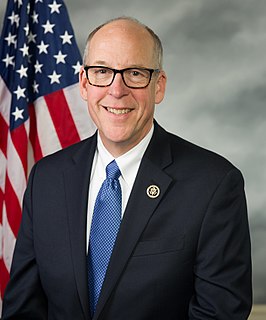A Quote by James B. Stewart
The Joint Committee on Taxation estimated that in 2016, the corporate income tax raised $300 billion in revenue, while what it called 'targeted subsidies' cost about $270 billion. In other words, Congress could eliminate the subsidies and cut the corporate rate nearly in half without any significant loss in revenue.
Related Quotes
My plan has all that. It's energy independence. It will help our economy. It's a significant tax cut for corporations, including automatic expensing. It's bringing all those profits home from Europe without any taxation. It's lowering our corporate - or our personal rate to 28 percent, the same rate that Ronald Reagan had.
I support both a Fair Tax and a Flat Tax plan that would dramatically streamline the tax system. A Fair Tax would replace all federal taxes on personal and corporate income with a single national tax on retail sales, while a Flat Tax would apply the same tax rate to all income with few if any deductions or exemptions.
Subsidies for the oil, gas and coal industries are projected to cost taxpayers more than $135 billion in the coming decade. At a time when scientists tell us we need to reduce carbon pollution to prevent catastrophic climate change, it is absurd to provide massive subsidies that pad fossil-fuel companies' already enormous profits.
I forget what the relevant American rate is, but I can tell you that our goal is to have a combined federal-provincial corporate tax rate of no more than 25 percent. We're on target to do that by 2012. We will have significantly - by a significant margin the lowest corporate tax rates in the G-7, and that's our - our government's objective.
A 2011 report produced by Forrester Research estimated that the revenue generated through the sales of smartphone and tablet applications will reach $38 billion annually by 2015. Think about that: An industry that did not exist in 2006 will be generating $38 billion in revenues within a decade. . . .
The appropriation of public money always is perfectly lovely until some one is asked to pay the bill. If we are to have a billion dollars of navy, half a billion of farm relief, etc... the people will have to furnish more revenue by paying more taxes. It is for them, through their Congress, to decide how far they wish to go.
Corn is already the most subsidized crop in America, raking in a total of $51 billion in federal handouts between 1995 and 2005 - twice as much as wheat subsidies and four times as much as soybeans. Ethanol itself is propped up by hefty subsidies, including a fifty-one-cent-per-gallon tax allowance for refiners.
































